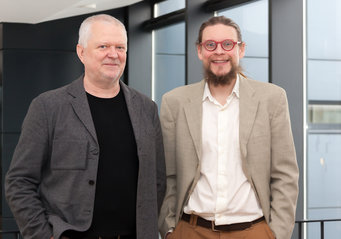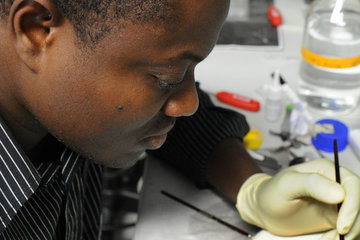Exploring the causes of health inequalities
A new Max Planck Center in Rostock and Helsinki
Inequalities in health and mortality are socially structured, can be observed in all societies worldwide and have increased in recent years. Researchers at the new Max Planck - University of Helsinki Center for Social Inequalities in Population Health (MaxHel) aim to use new concepts and a unique data set to uncover the central social processes that lead to inequalities in health - and thus life expectancy. The center officially opened on July 1, 2023.

Despite numerous studies, the causes of social inequalities in health are still not fully understood. While it is known that health inequalities arise and persist within families, they may vary by family size, generational span, social acceptability, or complexity. But the interplay between social processes and genetic factors underlying inequalities is largely unexplored. In particular, the reasons why health inequalities change over time, and under different social and economic conditions, remain unclear.
The new Max Planck - University of Helsinki Center for Social Inequalities in Population Health (MaxHel) aims to fill these gaps in understanding. It can build on the expertise of the Max Planck Institute for Demographic Research and the Population Research Unit at the University of Helsinki. "The Center analyzes how social family constellations, genetic factors, and individual social characteristics together produce health inequalities," says Mikko Myrskylä, Director of the Max Planck Institute for Demographic Research in Rostock.
A team of 14 postdoctoral researchers and PhD students based in Rostock, Germany, and Helsinki, Finland, will investigate the causes of social inequalities, the drivers of long-term trends in inequalities, and how these inequalities manifest themselves differently under different macro-level social conditions.
"MaxHel goes beyond standard observational research. We use exceptionally detailed linked family-based data, natural experimental designs, genetically informed social epidemiological data, and advanced dynamic modeling techniques. Uniquely, all these data are currently available at the University of Helsinki," says Pekka Martikainen, Professor of Demography at the University of Helsinki's Population Research Unit and the other director of the center.
The Max Planck Society and the University of Helsinki both contribute to the Center's budget of more than 5 million euros. Center Directors Myrskylä and Martikainen have successfully raised 2.5 million euros from the Max Planck Society, 2 million euros from the Jane and Aatos Erkko Foundation, 1 million euros from the Helsinki Metropolitan Area, and 0.5 million euros from the University of Helsinki.












